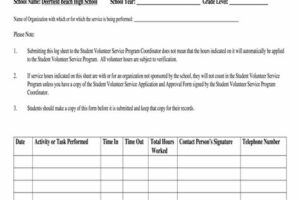Table of Contents
Is work experience the same as volunteering? This question explores the distinction between gaining professional skills through paid work and contributing to a cause without monetary compensation. Learn about the differences and benefits of both work experience and volunteering, and how they can enhance your personal and professional development.
When it comes to gaining valuable skills and enhancing one’s resume, work experience and volunteering often come to mind. However, it is important to understand that these two activities differ in various aspects. While both can contribute to personal growth and professional development, they offer distinct opportunities and experiences. Transitioning from the realm of work experience to the world of volunteering can be a transformative journey, allowing individuals to broaden their horizons, make a positive impact on society, and develop a unique set of skills that are not typically obtained through traditional employment.
Introduction
In the realm of professional development, the terms work experience and volunteering are often used interchangeably. However, it is important to recognize that there are significant differences between the two. While both offer valuable opportunities for personal growth and skill-building, they bring distinct benefits and serve different purposes in one’s career journey. In this article, we will delve into the contrasting aspects of work experience and volunteering, shedding light on their unique qualities and how they can contribute to professional success.
Defining Work Experience
Work experience refers to the practical knowledge and skills acquired through employment in a specific field or industry. It typically involves paid positions where individuals contribute their expertise and time to accomplish organizational goals. Work experience provides individuals with firsthand exposure to professional environments, allowing them to apply theoretical knowledge, develop technical competencies, and gain insights into industry practices.
Benefits of Work Experience
There are several key benefits associated with gaining work experience:
1. Skill Development
Work experience allows individuals to enhance their existing skills and acquire new ones that are relevant to their chosen field. Through hands-on tasks and responsibilities, individuals can develop proficiencies that are highly valued by employers.
2. Professional Networking
Engaging in work experience provides individuals with opportunities to build professional networks. By interacting with colleagues, supervisors, and industry professionals, individuals can establish meaningful connections that may be beneficial for future career prospects.
3. Industry Knowledge
Work experience offers a chance to gain in-depth knowledge about specific industries, including trends, challenges, and best practices. This understanding allows individuals to make more informed career decisions and adapt to changing industry dynamics.
Understanding Volunteering
Volunteering involves offering one’s time and skills to contribute to a cause or organization without financial compensation. It is driven by a desire to give back to the community, support a cause, or develop personal and interpersonal skills. While volunteering may occur within a professional setting, it is not primarily motivated by professional advancement.
Benefits of Volunteering
Volunteering offers various advantages that are distinct from work experience:
1. Personal Growth
Volunteering provides opportunities for personal growth, self-reflection, and development of one’s character. It fosters empathy, compassion, and a sense of social responsibility, contributing to an individual’s overall well-being.
2. Expanded Perspectives
Engaging in volunteer work exposes individuals to diverse experiences, cultures, and perspectives. This exposure broadens their horizons, cultivates open-mindedness, and enhances their ability to collaborate with people from different backgrounds.
3. Community Engagement
Volunteering is an avenue to actively participate in one’s community, making a positive impact and addressing social issues. It allows individuals to contribute to causes they are passionate about, fostering a sense of purpose and fulfillment.
Comparing Work Experience and Volunteering
While work experience and volunteering offer distinct benefits, it is important to acknowledge their differences:
1. Financial Compensation
Work experience typically involves paid positions where individuals receive financial compensation for their contributions. On the other hand, volunteering is unpaid, relying solely on an individual’s willingness to donate their time and skills.
2. Motivation and Purpose
Work experience is primarily motivated by professional growth, career advancement, and financial stability. Volunteering, however, is driven by personal fulfillment, altruism, and a desire to make a positive impact on society.
3. Commitment and Time Investment
In work experience, individuals are expected to commit a specific amount of time to fulfill their professional obligations. In contrast, volunteering offers more flexibility in terms of time commitment, allowing individuals to choose how much time they can dedicate to a cause or organization.
4. Learning Opportunities
Both work experience and volunteering provide valuable learning opportunities, but they differ in their focus. Work experience emphasizes skill-building and industry-specific knowledge, while volunteering fosters personal growth, empathy, and community engagement.
Conclusion
Work experience and volunteering may share some similarities, but they are distinct in their motivations, benefits, and outcomes. Both have their place in personal and professional development, offering unique opportunities to learn, grow, and contribute. Recognizing the differences between work experience and volunteering allows individuals to make informed decisions about their career paths and personal goals, leveraging each experience to maximize their potential.
Understanding the Difference
Work experience and volunteering are often used interchangeably, but it is important to recognize the fundamental differences between the two. Work experience typically refers to paid positions where individuals gain practical knowledge and skills in a professional setting, while volunteering involves offering one’s services without receiving monetary compensation.
The Purpose and Motivation
One key distinction between work experience and volunteering lies in the purpose and motivation behind each. Work experience is primarily driven by career development and financial compensation, whereas volunteering is based on a desire to contribute to a cause or a community. Both can provide valuable learning opportunities, but the underlying intentions differ significantly.
Time Commitment and Flexibility
Work experience and volunteering also vary in terms of time commitment and flexibility. Work experience positions often have set hours and require individuals to adhere to a specific schedule, mirroring the structure of a regular job. Conversely, volunteering can be more flexible, allowing individuals to choose their level of commitment and contribute their time based on their availability.
Skill Development and Expertise
While both work experience and volunteering allow individuals to gain skills and knowledge, they differ in terms of the specific expertise acquired. Work experience provides the opportunity to develop industry-specific skills, enhancing employability and professional growth. In contrast, volunteering often fosters interpersonal skills, cross-cultural understanding, and a broader perspective on societal issues.
Networking and Professional Connections
Work experience offers a distinct advantage when it comes to networking and building professional connections. Paid positions often provide opportunities to interact with professionals in the field, mentors, and colleagues who can offer advice and potentially open doors for future job opportunities. Volunteering, though valuable for community connections, may not always provide the same level of professional networking.
Financial Compensation and Considerations
One of the most apparent differences between work experience and volunteering is the aspect of financial compensation. Work experience positions typically offer monetary rewards, ensuring individuals are compensated for their time and effort. In contrast, volunteering is unpaid, relying on the goodwill and dedication of individuals to contribute to a cause without financial gain.
Impact on Career Prospects
The influence of work experience and volunteering on career prospects also varies. While both can benefit one’s resume and demonstrate valuable skills, work experience often holds more weight in the eyes of employers. Paid positions indicate a level of commitment, responsibility, and marketable skills that can be directly transferred to new roles. Volunteering, on the other hand, showcases a willingness to give back and contribute to society, which may be valued by employers in certain industries or organizations.
Personal Growth and Fulfillment
Finally, work experience and volunteering can provide different levels of personal growth and fulfillment. Work experience allows individuals to develop professionally and gain a sense of accomplishment through advancing their careers. Meanwhile, volunteering offers the opportunity to make a positive impact on others’ lives, fostering a sense of purpose and satisfaction that comes from contributing to something greater than oneself.
In professional settings, work experience and volunteering are often regarded as two distinct forms of engagement. While both activities involve contributing to a cause or organization, they differ in terms of their purpose, nature, and outcomes. Let us explore how work experience and volunteering can be distinguished:
1. Purpose:
- Work experience is typically pursued with the intention of gaining professional skills and knowledge in a specific field. It serves as a means to develop one’s career and enhance employability.
- Volunteering, on the other hand, is driven by the desire to make a positive impact and give back to society. It is often motivated by personal values, empathy, and a sense of social responsibility.
2. Nature of engagement:
- Work experience involves actively participating in paid employment or internships within an organization. It typically follows a structured framework where individuals fulfill defined roles and responsibilities.
- Volunteering entails offering one’s time, skills, and expertise to assist a nonprofit or community-based organization. The engagement may vary in terms of duration, flexibility, and the level of commitment required.
3. Skill development:
- Work experience provides opportunities for individuals to acquire industry-specific skills, expand their professional networks, and develop a deeper understanding of workplace dynamics.
- Volunteering, while also offering skill-building possibilities, often emphasizes the development of transferable skills such as communication, leadership, teamwork, and problem-solving.
4. Impact and outcomes:
- Work experience is typically measured by the ability to meet job requirements, contribute to organizational goals, and achieve professional growth. It often results in tangible outcomes such as promotions, salary increments, or improved career prospects.
- Volunteering is assessed by the positive change brought about in the lives of individuals or communities. The outcomes are usually intangible, focusing on personal fulfillment, social impact, and the creation of a more equitable society.
5. Recognition and validation:
- Work experience is highly valued in professional settings, with employers often considering it a crucial factor when making hiring decisions. It is often recognized through resumes, references, job titles, and professional certifications.
- Volunteering, while not always directly related to one’s professional path, is increasingly acknowledged for its contributions to personal growth, character development, and a well-rounded profile. It can be highlighted through volunteer work sections on resumes, letters of recommendation, or awards in recognition of outstanding community service.
In conclusion, work experience and volunteering may share some similarities, such as contributing to an organization, but they serve distinct purposes and offer different experiences. Both forms of engagement can be valuable in their own right, depending on the goals and aspirations of individuals. It is essential to recognize and appreciate the unique benefits and contributions that work experience and volunteering bring to personal and professional development.
Thank you for taking the time to visit our blog and read our article on the topic of work experience and volunteering. We hope that the information provided has been insightful and helpful in clarifying any confusion or misconceptions you may have had regarding these two forms of professional engagement.
As we have discussed throughout the article, work experience and volunteering are indeed different in nature, although they share some similarities. Work experience typically refers to the practical knowledge and skills gained through paid employment, whereas volunteering involves offering one’s services and time without financial compensation. Both forms of engagement can provide valuable learning opportunities and contribute to personal and professional growth.
It is important to recognize that work experience often relates directly to a specific field or industry, allowing individuals to develop expertise and establish themselves as professionals in their chosen career paths. On the other hand, volunteering allows individuals to contribute to causes they are passionate about, build networks, and develop transferable skills that can be applied to various areas of life and work.
In conclusion, while work experience and volunteering are distinct concepts, they both offer unique benefits and play important roles in shaping an individual’s professional journey. Whether you are considering taking up a paid position or looking to volunteer your time, it is crucial to understand the differences between the two and make informed decisions based on your personal aspirations and goals.
We hope this article has shed some light on the topic and helped you gain a better understanding of work experience and volunteering. Should you have any further questions or would like to delve deeper into this subject, please feel free to browse through our blog for more informative content or reach out to us directly. Thank you once again for your visit, and we look forward to providing you with more valuable insights in the future.
.
People also ask about whether work experience is the same as volunteering. Below are the answers to some commonly asked questions on this topic:
1. Is work experience the same as volunteering?
- No, work experience and volunteering are not the same.
- Work experience typically refers to the paid or unpaid employment in a specific field or position.
- Volunteering, on the other hand, involves offering your services willingly and without payment to support a cause or organization.
- While both can provide valuable skills and experiences, they differ in terms of purpose, commitment, and compensation.
2. Are the skills gained from work experience and volunteering different?
- The skills gained from work experience and volunteering can overlap to some extent.
- Work experience often focuses on developing technical skills directly related to a specific job or industry.
- Volunteering, on the other hand, can help individuals develop transferable skills such as teamwork, communication, and problem-solving.
- Although the specific skills acquired may vary, both work experience and volunteering can contribute to personal and professional growth.
3. Which one is more beneficial for career development: work experience or volunteering?
- Both work experience and volunteering can be beneficial for career development, but their impact may vary depending on individual circumstances.
- Work experience is often highly valued by employers as it demonstrates relevant skills, industry knowledge, and a commitment to professional growth.
- Volunteering, on the other hand, showcases a person’s willingness to contribute to society, develop transferable skills, and demonstrate initiative.
- In some cases, combining both work experience and volunteering can provide a well-rounded profile that appeals to employers.
4. Can volunteering be considered as work experience?
- Volunteering can be considered as valuable experience, but it may not always be viewed as traditional work experience by employers.
- While volunteering can provide individuals with skills and experiences relevant to certain roles, employers may prioritize paid work experience for certain positions.
- However, highlighting the skills gained through volunteering and demonstrating their relevance to the desired job can still make a positive impression on employers.
- It is important to tailor the presentation of volunteering experiences to align with the requirements and expectations of the specific job or industry.
Remember, both work experience and volunteering can contribute to personal growth, skill development, and career advancement. It’s essential to showcase the unique benefits and qualities of each when discussing them with potential employers or considering their impact on your career journey.






